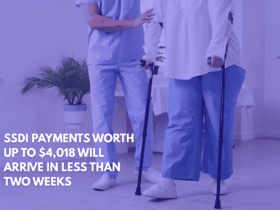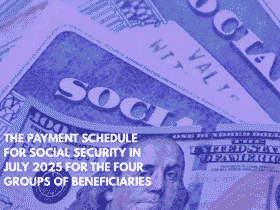Social Security has long been a financial lifeline for millions of retired Americans. But today, its future is uncertain. With warnings from experts and government officials, there’s growing concern that the system may not be able to pay full benefits in the years to come.
This has left many seniors wondering how they’ll manage if their monthly payments are reduced. In this article, we’ll explain why Social Security is in trouble, what’s being done to fix it, and how seniors can prepare for possible changes.
Why Social Security Is in Danger
The Social Security program started in 1935 to support retired workers. Over the years, it has expanded to include benefits for disabled individuals and survivors of deceased workers. However, the system is now facing serious financial issues.
The biggest problem is that Social Security is paying out more money than it’s taking in. This is mainly because more people are retiring (especially baby boomers), and fewer workers are paying into the system. As a result, the money in the program’s trust funds is quickly running out.
When Will the Funds Run Out?
According to the Social Security Administration, the trust funds could be empty by the year 2033. If that happens, the program will only be able to pay about 77% to 80% of promised benefits.
That means someone receiving $1,700 a month could see their check drop by over $300. For seniors who depend on this money for daily expenses like rent, medicine, and food, this would be a major problem.
What Caused the Shortage?
Several key reasons are behind the current crisis:
More Retirees
Millions of baby boomers are retiring. This means more people are receiving benefits, but fewer workers are contributing to the system through payroll taxes.
Longer Life Spans
People are living longer today than when Social Security started. While this is a good thing, it also means the government has to pay benefits for more years than before.
Fewer Workers
With lower birth rates and smaller workforces, there aren’t enough workers paying taxes to support the growing number of retirees.
Stagnant Wages
If wages don’t rise fast enough, Social Security doesn’t collect enough money from payroll taxes, making the situation worse.
What Happens If Nothing Changes?
If no reforms are made before 2033, benefits could be cut by about 20% to 23%. This would affect over 70 million people who rely on Social Security. Even though the program won’t disappear entirely—because it still collects taxes from current workers—these cuts could push many seniors into financial hardship.
What Can Be Done to Save Social Security?
Fixing the problem won’t be easy, but there are several ideas being discussed in Congress:
Raise the Tax Cap
Currently, workers only pay Social Security tax on income up to $160,200. Raising or removing this cap would bring more money into the system.
Increase the Retirement Age
Because people are living longer, some lawmakers suggest raising the retirement age. This means people would need to work a bit longer before they can claim full benefits.
Cut Benefits for the Wealthy
Reducing benefits for high-income earners could help preserve full payments for lower-income retirees who need them most.
Raise Payroll Taxes
Even a small increase in the payroll tax rate could help fix the gap between money coming in and going out.
What Seniors Can Do to Prepare
While we wait for lawmakers to act, seniors can take a few important steps to protect themselves:
Build Other Income Sources
It’s risky to depend only on Social Security. Seniors should consider using savings, investments, pensions, or part-time work to add extra income.
Delay Taking Benefits
If possible, waiting until age 70 to claim Social Security can boost monthly payments by up to 32%.
Stay Informed and Get Involved
Seniors should follow news about Social Security and support groups that fight for their rights, like AARP.
Review Spending Habits
With the risk of reduced benefits, it’s wise to cut unnecessary expenses and focus on essential needs like housing, food, and healthcare.











Leave a Reply